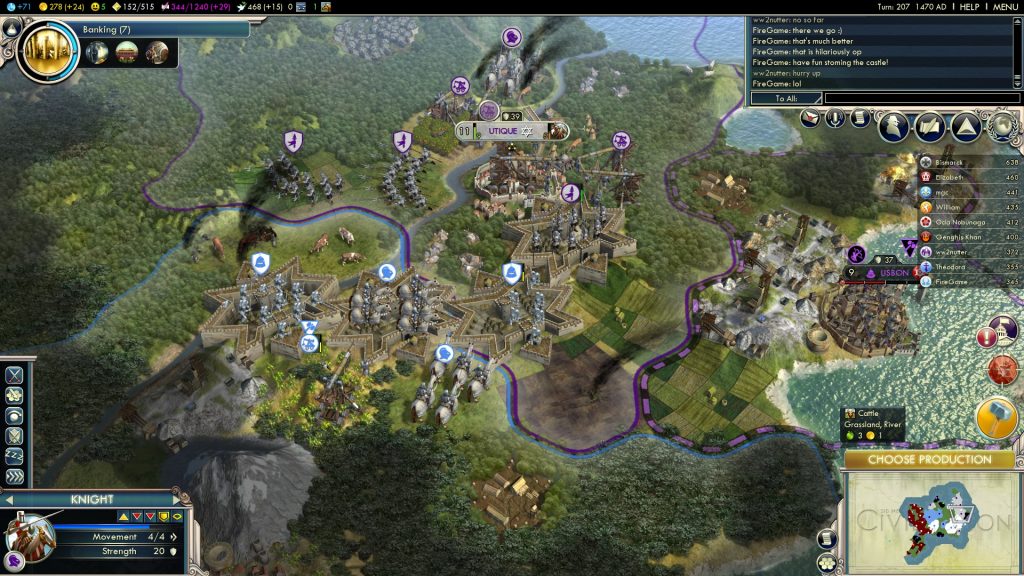I own one of the best gaming laptops you can buy. I have owned it for a year and played less than 10 hours of games on it. Ah well, such is life.
But while I currently use the GPU power to run neural nets, it used to be I did play games. Indeed, I had an absolute obsession with Battlefield 1942 in 4th and 5th grade. I ran around in the game, shooting things, sometimes my teammates, crashing planes, and stealing checkpoints. Looking back on it, I was actually quite good for such a young gamer.
The thing is, I was playing online, and I never fully realized I was playing with other living human beings. Usually I focused on playing the game as I was supposed to, but I do being… unconventional as well. I aimlessly wandered around the map, routinely running over teammates on accident, and doing all sorts of things that must have driven the more aware players on my teams crazy.
Digressions aside, there is one game series that has been with me almost my entire life, and which has definitely influenced the way I think today: the Civilization series.
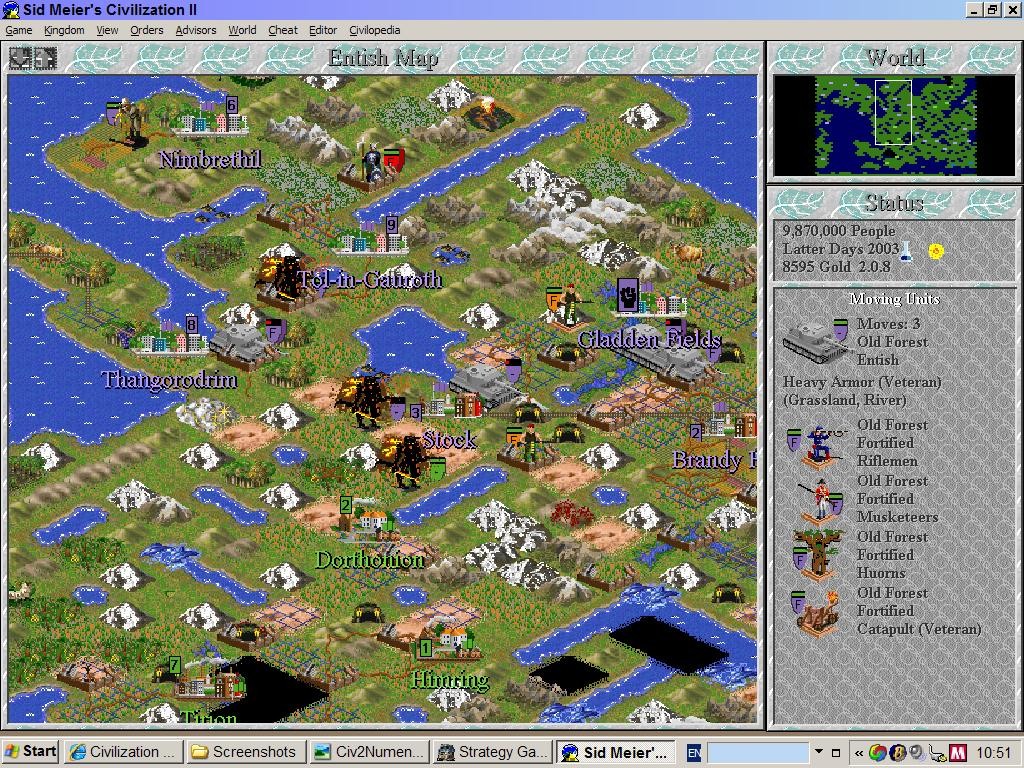
Ah, the good old days of Civilization II. I had completely forgotten about the silly national advisers’ panel, the upgrades to the Throne Room you could make over time, and the rather cool-looking spaceship you built for the technology victory.
I recall making all sorts of mistakes in Civ II, particularly rarely building enough military units to defend my aggressively-expanded cities. My strongest memories of the game are of barbarian horsemen sacking my cities.
Then again, I was about six years old when I first started playing, since I got my first laptop in 2001, so lots of mistakes are to have been expected. That also means the earliest strategic decisions I can recall making in my life are from playing Civ II during this time period. For the most part, though, my actions were copied directly from my dad, whom I watched play while laying on the armrest of the big armchair he sat in. He had a fondness for technological victories, rapid expansion, and trade caravans which formed the foundation of my style in later games.
I’m going to pass over Civ III because I didn’t spend particularly long playing it. My dad preferred Civ II (and he stuck with it until I got him into Civ V) and therefore I held back from engaging much beyond Civ II, at least until Civ IV came along in 2005…
Civ IV came out in 2005, and I was definitely playing it, along with its expansion, Beyond the Sword, quite intensively in 2006 to 2008. This time my strategy much more my own: from here on I was the pioneer and expert of the family.
The thing that really stands out in my mind about Civ IV is playing the mod Fall from Heaven II (along with several modmods).
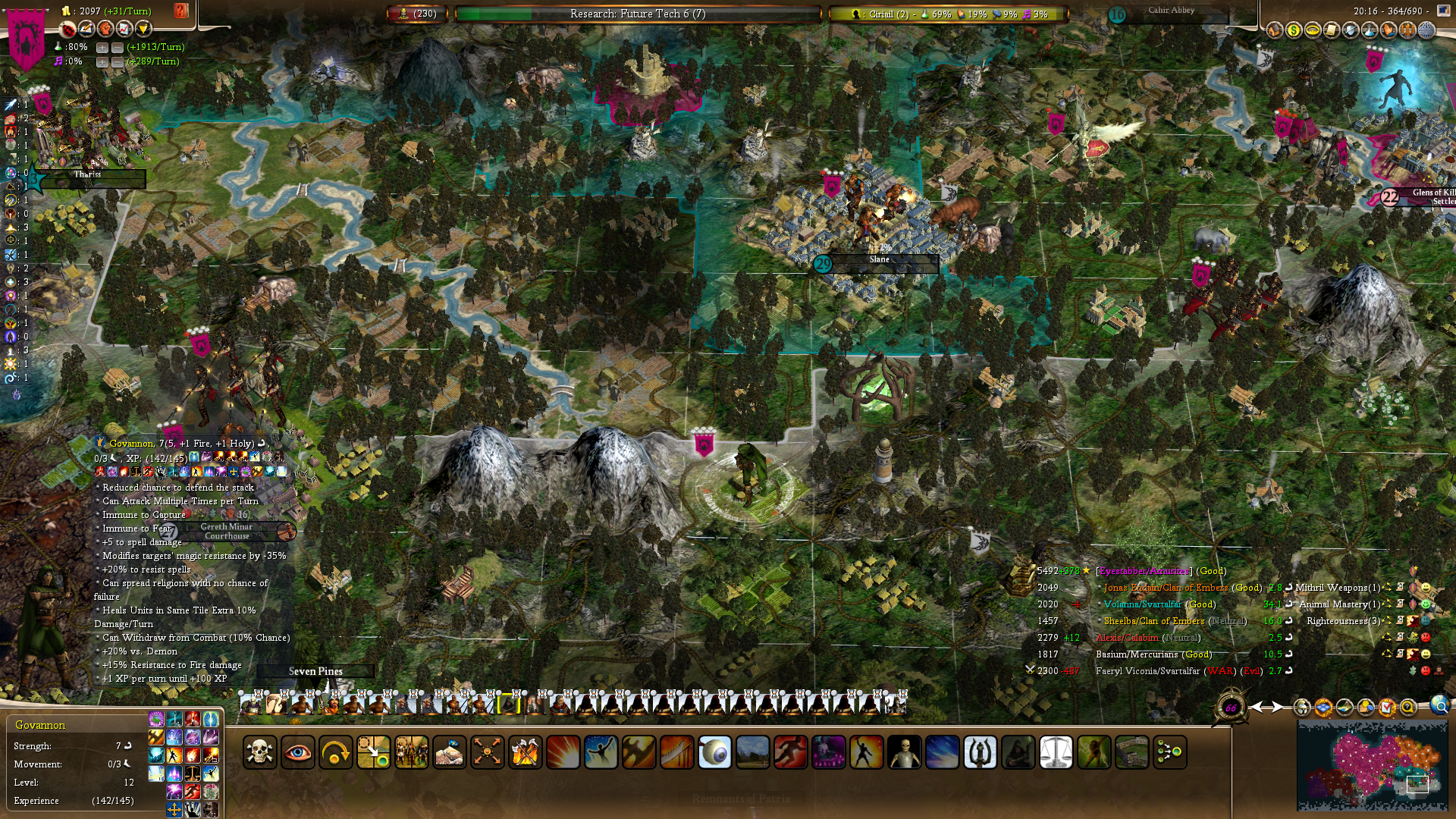
Fall from Heaven is another case of me playing a game where I didn’t really have much idea of what was going on. Magic. Dragons. The coming Apocalypse of Hell. It’s all based on D&D, with the loose collection of inspirations you would expect to find (like LOTR). It was all a bit much for an eleven year old such as myself to completely put together.
Interestingly, installing this mod is (as I recall) the first advanced computer operation I had performed. The mod required installing multiple packages in specific locations, troubleshooting, and making some configuration changes. It would probably take me at most ten minutes today, but it took me days back then. Keep in mind that the internet tutorials of the day were not quite as strong as they are now on all subjects, certainly harder for a young person to sort through.
Yet, despite the fact that I had no idea what in the hell (literally, hell tiles spread slowly across the map) was really the narrative of it all, I still loved the game. The powers of evil in the game made me nervous -from horror films to this I have always been innately uncomfortable with portrayals of evil, which I suppose is basically the point. But at the same time the greater range of powers and consistent in-game narrative the good-evil setup brought was intoxicating.
Above all else, however, I just liked how it looked. The terrain was beautiful: lots of mountains, medieval-fantasy styling, and everywhere interesting and unusual artifacts and mystical places. The medieval-fantasy styling of Fall from Heaven remains one of the basic templates in my head for visualizing worlds. It is one of the few ‘ideal’ styles that exist in my head, alongside something completely different: art deco… queue Civ V.
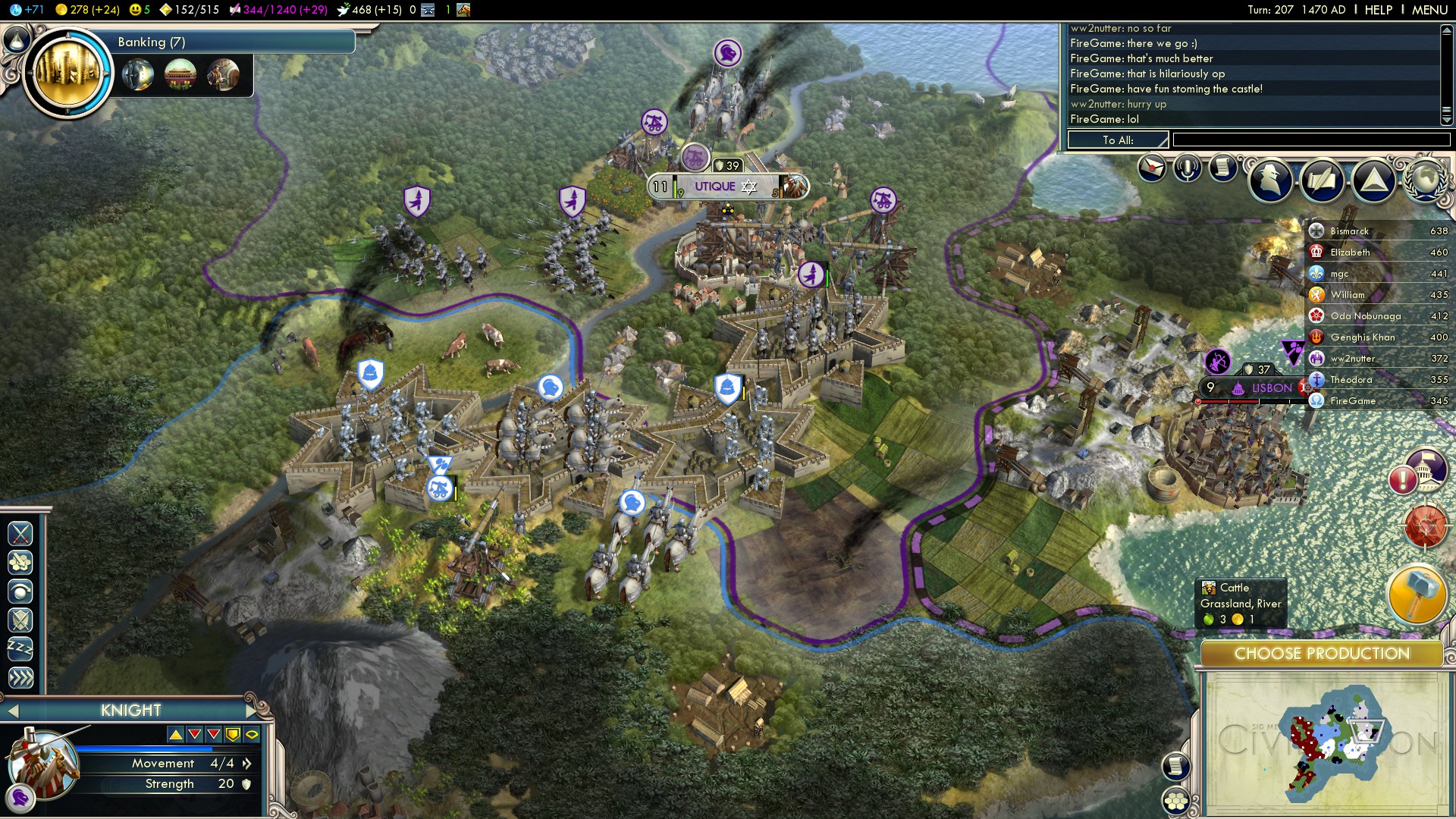
I have spent by far my most hours of the series on Civ V. While suffering through a relatively buggy release, I stilled enjoyed it greatly. On this platform I finally beat deity level (diplomatic victory as Venice), the highest in the game. I also have beat my dad in every game we’ve played. Unlike Civ IV, which seemed to naturally lend itself to more mystical experiences, Civ V was always more about the wonders of human achievements, a fact emphasized in the Brave New World expansion (incidentally that title provoked me into finally reading Huxley’s book of the same name, which I greatly enjoyed). I took to this immediately: I really love a more mystical beauty, but my strengths lie in this domain of industry, economy, and science.
Depending on your perspective, Civ V either developed, or brought out, a number of my basic policies:
Flexible Strength: an empire with a strong economy, strong industry, and leading technology will always win the game. Even just having one or two of those aspects can be enough to win, depending on the game. It is my philosophy not to focus on one type of victory (as one must if seeking cultural or religious victories), but only on building the strengths. Strength alone will often bring success.
On a small scale in game, I prefer to have a military reaction force with a defense-in-depth policy as my military strategy. Strong, fast ranged units like crossbowmen are ideal. And wars are far easier to win if you make your enemy come to you, through a meatgrinder of difficult terrain and overlapping fields of fire, than to have to defeat that army in their own lands.
In the real world, money, production, and technology are perhaps a little more tightly linked than in the game, but the pattern still holds. In my daily life, I don’t focus on achievements in particular so much as I focus on developing my strengths and skills. Indeed, I think playing the Civilization games greatly exaggerated the focus on science, industry, and progress started by my parents. These things were so obviously important both in and out of games that they became more important to me. I also have always assumed that the absolute importance of these things was therefore obvious to others as well. Sadly, to most people, obvious these things are not.
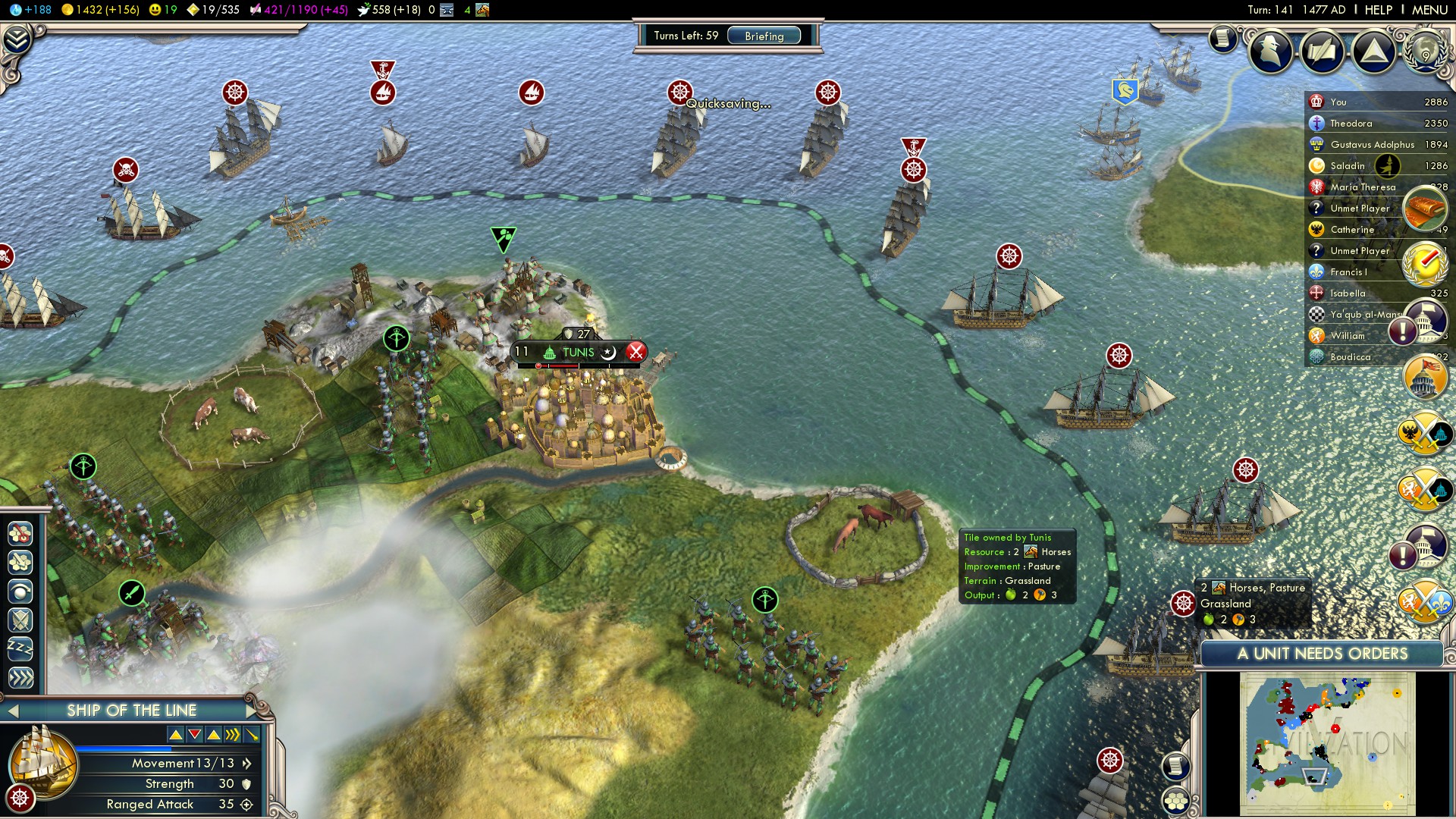
Asset Protection: In game, units are expensive to build, wasting valuable time building up industry. Best to attack from safe positions, using ranged attacks to do most of the damage, and using maneuverable melee units who can quickly withdraw to recover. In real-life, it is generally true that I now am extremely happy to take initiative and minor risks, but rarely risk major loss. I think of most assets and opportunities as difficult to regain when lost, in large part due to Civ V.
Far-Flung Domains: You may have realized in life that I tend to maintain footholds in many areas, rather than just focusing on one or two. I won’t claim this behavior originated in the game, but it was definitely encouraged there. Playing, in particular, as Dido of Carthage and Dandolo of Venice, I generally play with a far-flung naval empire, if possible. Even on land, say, as the Shoshone I prefer to have cities spread far across the land. It’s a resilient strategy. It probably results in more wars over territorial tensions, but the distances involved make major conquests by an aggressive foe hard. It’s also just more exciting. There are more opportunities brought, even if it is more difficult to create.
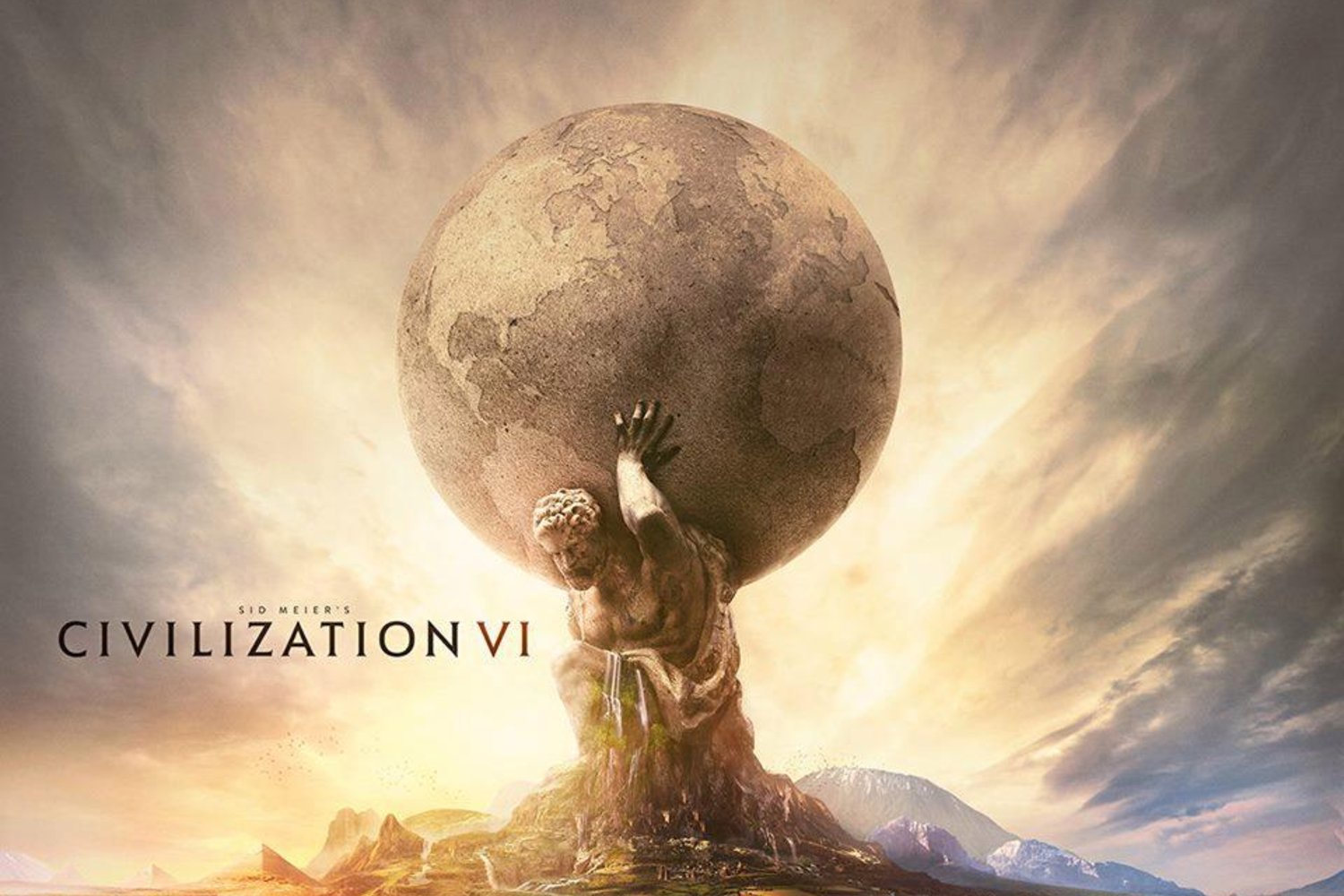
Civ VI, well, I don’t like the visual style of the game nearly as much it’s predecessors.
Cartoon styles?
Nope, not a fan.
So, I’ve played all of two games in it so far. Maybe I have just grown tired of the basic formula of the series. Civilization is far more enjoyable in repetition than most video games, but in the end even the latest game still follows the same patterns as before (as I believe it should). Two very busy years of academics haven’t helped, and now that I spent almost all of my ‘work’ time on computers, I really don’t fancy sitting down for more when I relax. Although here I am doing just that, so perhaps I just don’t find video games productive enough at this point in my life?
It seems an era has ended. Once, I found the Civilization games a welcome relief from repetitive schooling where on a daily basis little was actually accomplished. Civilization, along with few other activities like studying history, engaged in the world at a global level. In Civilization I could make grand dreams, far beyond the slow cycle of suburbia. Now, unlike then, I am actually capable of, and allowed to, go out and engage the world.
Ironically, playing Civilization (and reading stories, not discussed here) taught me that my actions could, at least partially, control the world. That, in turn, made me start to move on from Civilization, as I sought to control the real world to a greater extent.

